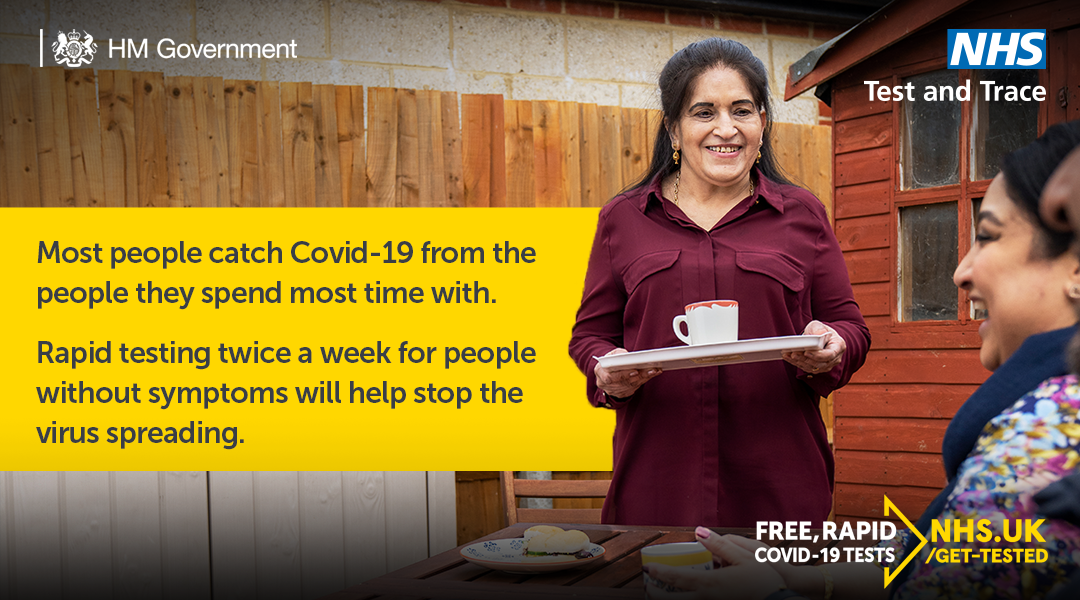People attending antenatal appointments and scans are being asked to start self-screening for Covid-19.
The Government has recently made twice weekly rapid testing, also known as lateral flow testing, available to everybody, as up to 1 in 3 adults have Covid-19 without any symptoms but can still infect others.
Pregnant women and their birth partners are advised to carry out the test twice a week during pregnancy for their own peace of mind, and to ensure any Covid infection is picked up early and managed.
Now from Friday 11th June, women and support partners attending antenatal appointments and scans at Hull Women and Children’s Hospital will be asked to bring proof of a negative lateral flow test with them to their appointment. For appointments on 11th June, this means taking a lateral flow test today.
For planned appointments such as scans and clinic appointments, women should self-administer a Covid test 24 to 48hours before an appointment. If the woman wants a support partner to accompany her to her appointment, the partner should also take a test 24 to 48 hours before the appointment.
Twice weekly lateral flow tests are readily available in many community locations including local pharmacies, selected supermarkets, leisure centres and other council-run buildings, free of charge. They can also be ordered online via GOV.UK or by calling 119. The test is undertaken at home prior to the woman and support partner attending.
Proof of a negative test result should be brought to the antenatal clinic or scan appointment. Anyone returning a positive result must not attend the hospital, but should contact the appropriate department as soon as possible to cancel and reschedule their appointment, while following all other relevant NHS instruction on testing and self-isolation.
Lorraine Cooper, Head of Midwifery for Hull University Teaching Hospitals NHS Trust says:
“In line with national guidance, all hospitals will be asking women and their support person to carry out a lateral flow test before coming to hospital for routine antenatal care.
“This will help us identify people who may be Covid positive and unaware of it, so that we can manage their care appropriately, but it should also prevent them attending hospital and so reduce the risk of transmission to others.”
The requirement follows the recent relaxation of rules which previously prevented partners from accompanying women to their antenatal scans and clinic appointments.
Lorraine continues:
“We were pleased to be able to allow partners back to antenatal appointments and scans; for many pregnant women we know their partners’ support is vital and they also want to share in the joy and excitement that a new baby brings. At the same time, we know many people have had Covid-19 and shown no signs or symptoms, so completing a quick lateral flow test just prior to the appointment date is an easy way to show you care and reduce the risk for everyone.”
Anyone returning a positive result whose appointment is rescheduled will still be assessed at that point to ensure any delay is still clinically safe.
More details can be found in our patient leaflet: https://www.hey.nhs.uk/patient-leaflet/maternity-guidance-during-coronavirus-covid-19-changes-to-our-services/
Find out how and where to get free lateral flow test kits at https://www.nhs.uk/conditions/coronavirus-covid-19/testing/regular-rapid-coronavirus-tests-if-you-do-not-have-symptoms/

